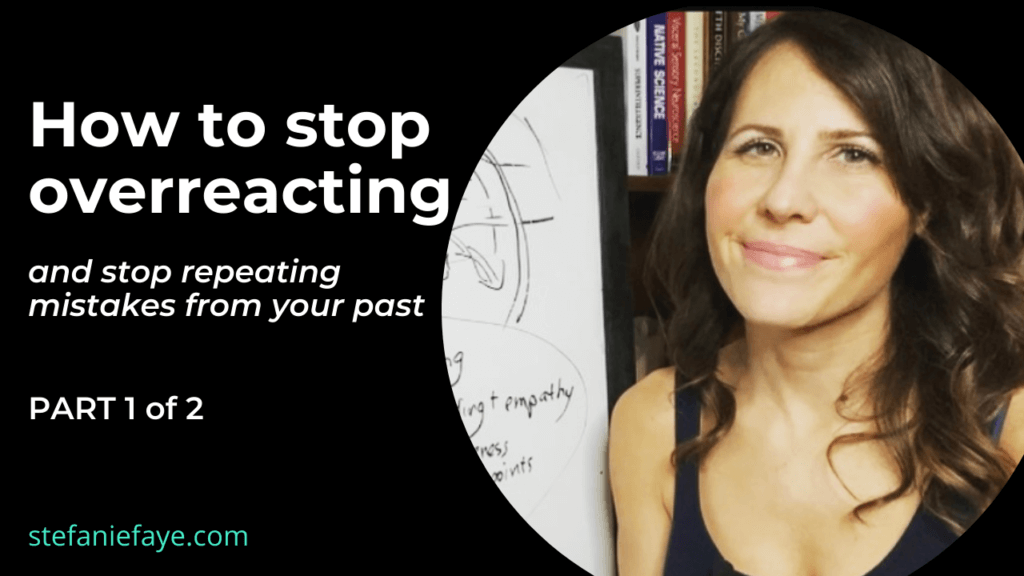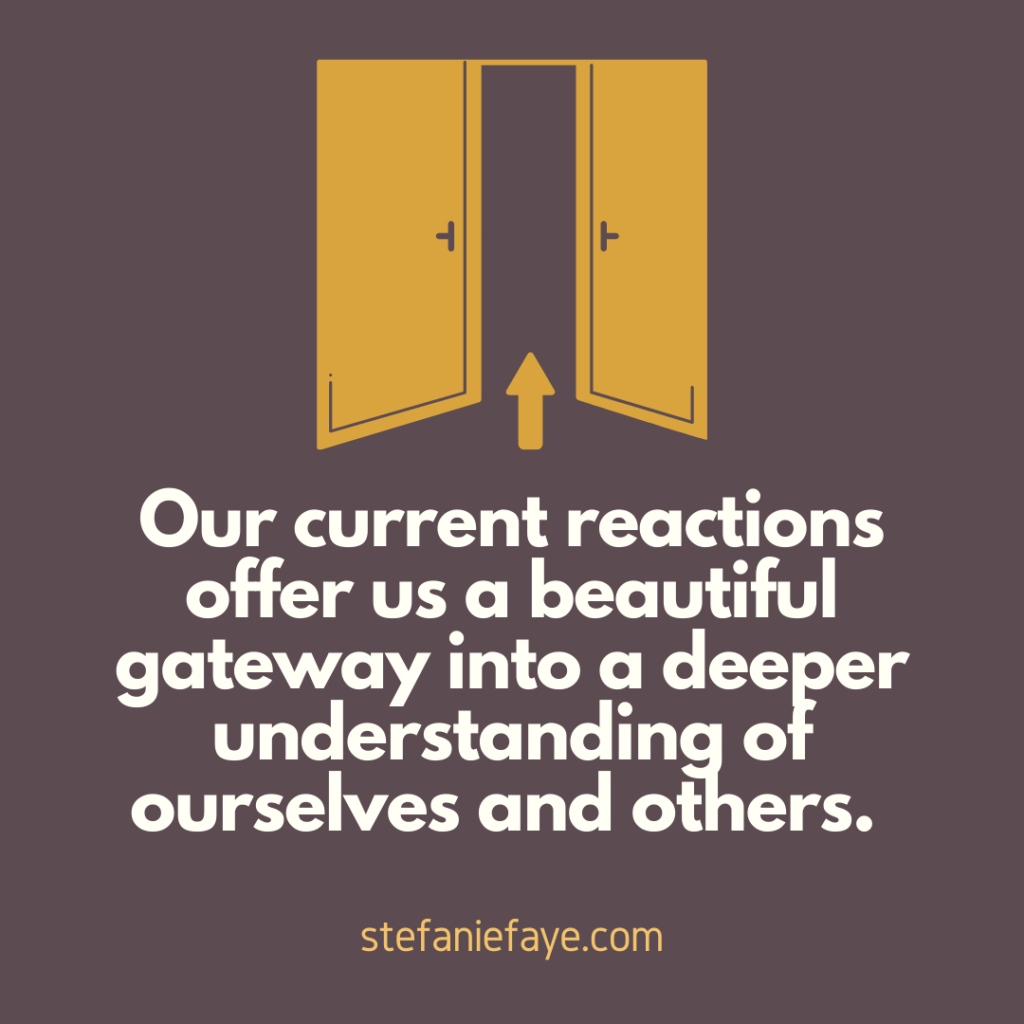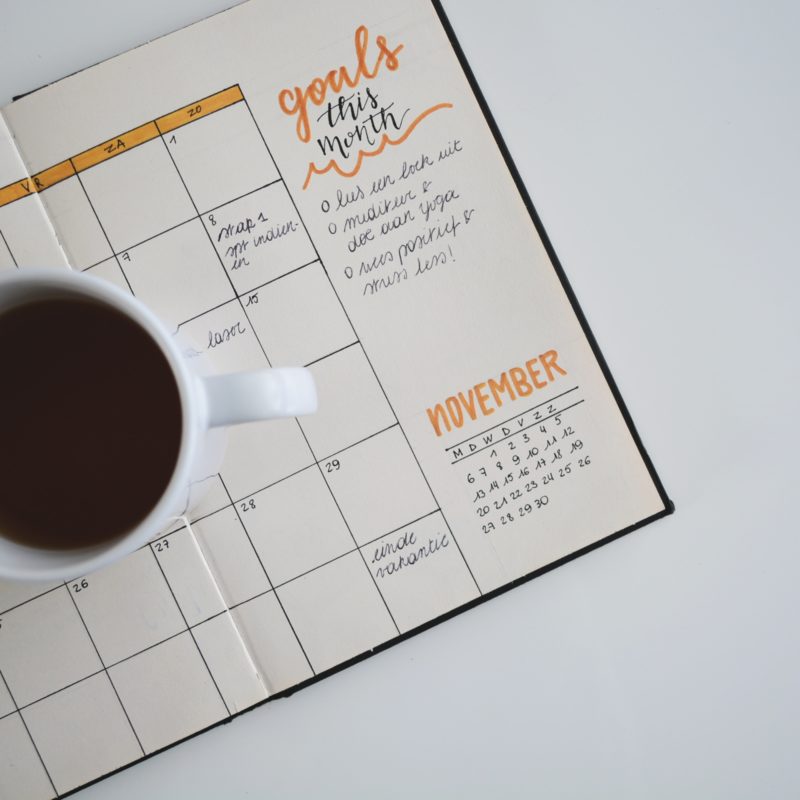
Have you had an argument recently, or an interaction with someone that didn’t go as you hoped it would?
What was your reaction in this situation? Was it anger, defensiveness, or shutting down?
Did you say what you truly wanted to say?
Did you hold back?
Or did you say something hurtful?
Is there something you feel about this situation that you can’t put your finger on why it bothers you so much? Or do you think you know why, but you don’t know how to express it to that person?
I’m going to say something bold.. And I've said this before in a variety of ways in my podcast and other articles… but there is a very, very, very good chance that your reaction in that recent interaction was tied to something from a long time ago. Some of you may see that very clearly, some you may not.
In today’s podcast episode, I go into
- brain-body mechanisms that lead to overreactions
- connecting the dots between your childhood and anxiety, stress, depression and other challenges you may be facing
- A process to help us be less reactive and increase our attentional control during difficult interactions
Why connecting the dots between your childhood experiences and your current reactions matters
We’re getting signals all the time from the people we interact with. Some of those signals are visible and audible, others are ones we can feel from another person based on their movements. There are various aspects of how your brain deals with signals and Layers that correspond to receiving inputs (Layer 1), processing and feedback/feedforward (Layer 2) and transmitting such as with motor neurons (Layer 3).
See https://www.nature.com/articles/s41598-017-08331-0
There are 2 important things to think about when it comes to how we ‘receive’ signals from another person:
These signals don’t just enter the brain
they must go through the body and the senses - both of which already have their own forms of computation that are based on experiences and various thresholds built over time. As i mentioned in the last podcast, each person will have their own anticipatory adjustments that will lead them to focus their attention in specific ways and notice specific signals about the other person. And those anticipatory adjustments will be based on past experiences. Because of this, no two people will experience an interaction in the same way.
Processing in the brain doesn’t occur in a vacuum.
It’s not like the brain refreshes into a blank slate at every moment. Different circuits fire based on your experiences. Associations and algorithms get created to make information processing more efficient. If this didn’t happen, we would not learn because no information would be retained. We must have past information that the brain can build off of to then use as a building block for more complexity. If our brain-body didn't hold on to the past, we would have to re-learn to walk every time we stood up. (actually we wouldn't even know how to stand up!).
This means that the past is always playing a role.
There’s no way around this. But the more awareness we can bring to each moment, the more chance we have at using our past as a strength to build off of. The less we are aware of this, the more the past is unconsciously leading us to react in ways that are repetitive and based on immature logic models.

Our current reactions offer us a beautiful gateway into a deeper understanding of ourselves and others.
Yes, the past can keep us reactive and repetitive. But it can also give us a more empathic and sophisticated understanding of our own behavior and that of others.
As much as you may not like that you overreacted, or said something you regret, or held back from saying something you really wanted to… Making a connection between these undesired reactions and how they stem from our earliest experiences can actually help us in profound ways.
- It makes the current situation less ‘life-threatening’
- It creates empathy for yourself and the other person
- Adds the dimension of awareness, which creates new choice points for new trajectories
I cover these 3 key ideas in part 1 of this video:
*please note that the suggestions and exercises offered in these articles, podcasts and videos are not offered as a substitute for professional mental health care or medical care and are not intended to diagnose, treat or cure any mental health or medical conditions.


